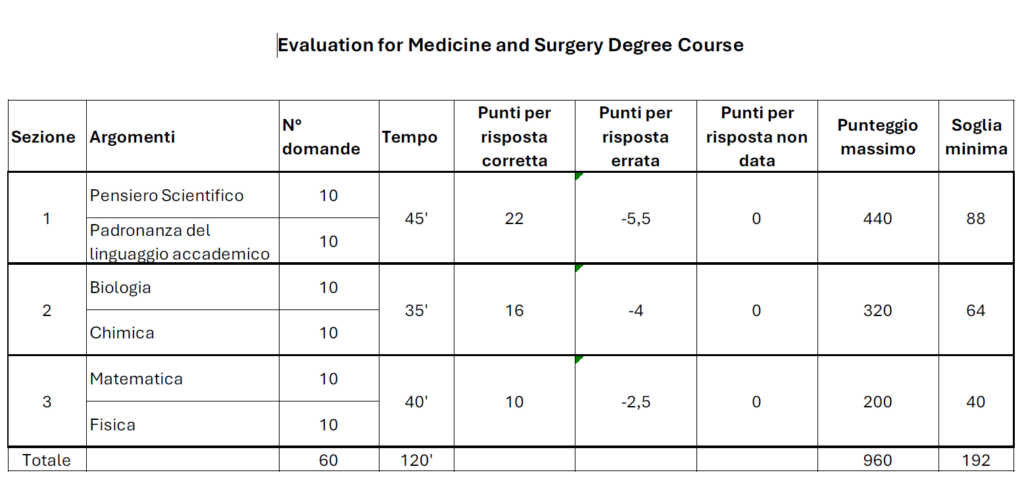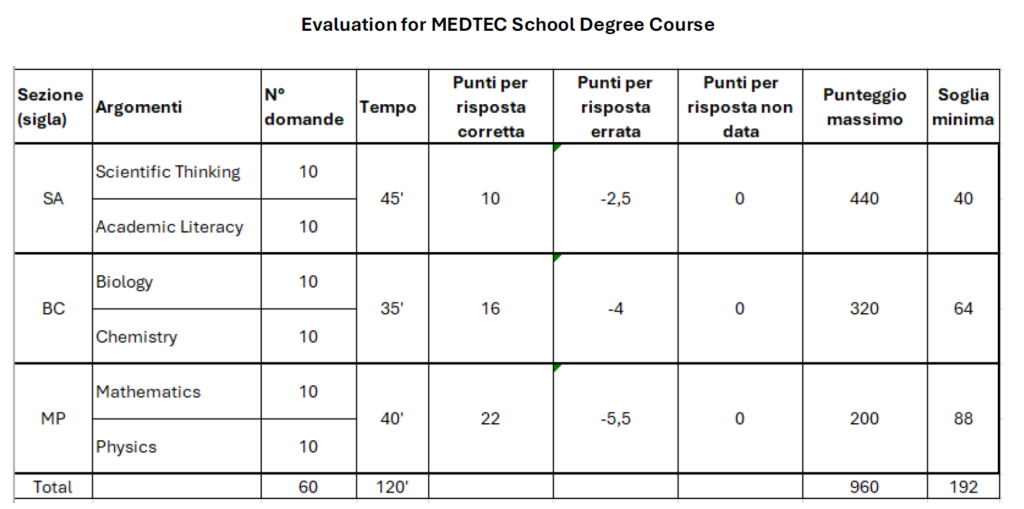Humanitas University
NEW HUMANITAS UNIVERSITY ADMISSIONS TEST
The new Admission test for Medicine and Surgery and MEDTEC School degree courses is the first step into your career at Humanitas University.
As a candidate, you will take a single test and can choose which degree program to compete for: Medicine and Surgery, MEDTEC School or both. This means that, although there is a unique test, the evaluation system will be different: the sections that compose the test will have different weights depending on the degree course for which you are competing.
THE HUMANITAS ADMISSIONS TEST
The new Admission test for Medicine and Surgery and MEDTEC School degree courses is the first step into your career at Humanitas University. As a candidate, you will take a single test and can choose which degree program to compete for: Medicine and Surgery, MEDTEC School or both.
The Humanitas Admission Test is divided into three distinct sections, each consisting of multiple-choice questions. In total, the test includes 60 questions to be completed in 120 minutes.
The three sections of the test are:
1. Scientific thinking and Academic Literacy (20 questions, 45 minutes)
2. Biology and Chemistry (20 questions, 35 minutes)
3. Mathematics and Physics (20 questions, 40 minutes)
Double your chances
Humanitas University offers two opportunities to take the online admission test:
- I round: 5th – 6th March 2026
- II round: 18th – 20th March 2026
Only last-year high school students and graduates are eligible to take the tests.
Students may decide to take the test in one or both rounds available. For those who will take the admission test on both test dates and obtain a valid score in both tests, the final ranking will only consider the higher of the two scores achieved.
To access the final ranking, each candidate must submit the highest score on the Humanitas University Registration Portal.
Evaluation
For both degree programs, the maximum achievable score on the test is 960 points. Candidates who reach the minimum threshold in each section of the test are considered eligible for the final ranking list. The answers in each section are evaluated differently for Medicine and Surgery and MEDTEC School, as are the minimum thresholds for each section.




